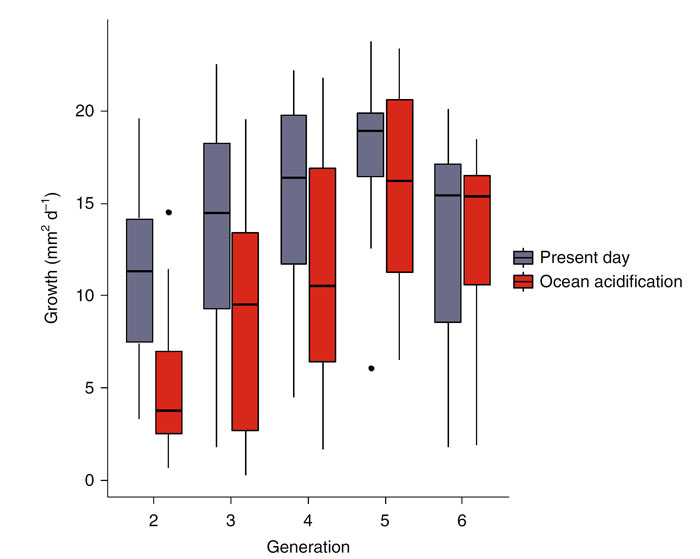| Tweet | Follow @co2science |
Paper Reviewed
Cornwall, C.E., Comeau, S., DeCarlo, T.M., Larcombe, E., Moore, B., Giltrow, K., Puerzer, F., D'Alexis, Q. and McCulloch, M.T. 2020. A coralline alga gains tolerance to ocean acidification over multiple generations of exposure. Nature Climate Change 10: 143-146.
In the words of Cornwall et al. (2020), crustose corralling algae (CCA) are "ecologically important calcareous red macroalgae that help create and cement reefs from the tropics to the poles, and provide a settlement substrate for marine invertebrate larvae such as corals, abalones and sea urchins." However, the nine-member research team notes that CCA are considered highly susceptible to ocean acidification because the algae precipitate high-magnesium calcite, which is a highly soluble form of calcium carbonate that is considered to be highly susceptible to increased dissolution from declining seawater pH. Therefore, the scientists set out to examine the tolerance of a key reef-accreting and cementing CCA species, Hydrolithon reinboldii, to ocean acidification.
The specifics of the experiment involved exposing juvenile CCA from populations collected under naturally low and high pH variability sites to present-day (8.00) and future-predicted (7.70) seawater pH conditions over several generations. All treatments were maintained in a controlled laboratory setting.
Results of the experiment revealed that "the resistance of juvenile CCA to ocean acidification increased incrementally over each generation during this 423-day experiment." More specifically, as shown in the figure below, CCA populations in the ocean acidification treatment grew 56.1% slower in the second generation compared to populations growing under normal pH conditions. Thereafter, according to Cornwall et al., the "sensitivity to lower mean pH declined over subsequent generations, to 33.1, 29.7, 12.8 and 2.0% between generations 2 to 6."
In light of the above findings the authors conclude their results demonstrate that "benthic calcifying organisms can increase their tolerance to ocean acidification over multiple generations of exposure, indicating that at least this species of CCA has the potential to gain tolerance to ocean acidification well within the time frame of when its effect will manifest." Such positive findings bode well for the future of this important reef species and add to the growing body of literature revealing ocean acidification is not the monstrous nightmare alarmists make it out to be (see the many reviews on this topic posted here under the heading Ocean Acidification). In many cases, such as was observed here, it is found to be a non-problem.

Figure 1. Growth of CCA populations after exposure to present-day and ocean acidification treatments for two to six generations. Median and 75% quartiles are shown. Source: Cornwall et al. (2020).




